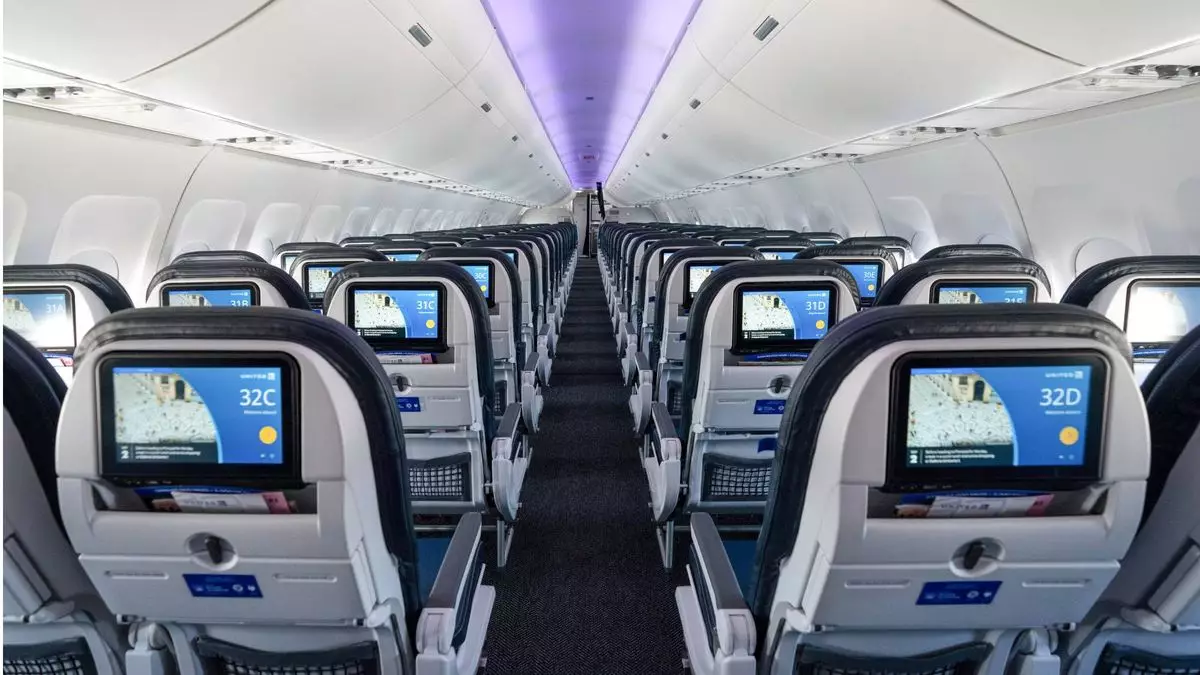In the highly competitive aviation industry, United Airlines is making significant strides with its approach to low-cost travel. The latest earnings report reveals a remarkable increase in revenue from basic economy fares, prompting the airline to rethink its business model. This article delves into the implications of United’s focus on basic economy offerings, the associated strategies, and the broader consequences for the airline and the industry.
During a recent earnings call, United Airlines reported a substantial 20% year-over-year increase in revenue derived from basic economy sales. This follows an impressive 50% growth the previous year, highlighting a trend that appears to resonate well with travelers seeking budget-friendly options. Andrew Nocella, United’s Chief Commercial Officer, described the success of basic economy as a “home run,” emphasizing its role in the airline’s evolving business strategy. As of now, approximately 16% of United’s domestic passengers are flying under the basic economy fare class, an increase from the previous year’s figure of 12%. This growth is not just a footnote; it represents a significant shift in passenger preferences.
However, the allure of lower fares comes with some trade-offs for passengers. Travelers purchasing basic economy tickets do not have the luxury of seat selection or the ability to stow a carry-on bag in overhead compartments; they are limited to a personal item that must fit under the seat in front of them. Moreover, flexibility is compromised as these flyers cannot change their flights, although they retain a partial credit in case of cancellations. These restrictions raise questions about the long-term viability of basic economy as airline expectations evolve alongside traveler needs.
Nocella has signaled that United plans to increase its basic economy offerings further, should this model prove profitable. The airline’s shift towards larger aircraft allows it to accommodate more basic economy passengers. Projections indicate that by 2027, United’s average aircraft capacity for domestic flights will rise to 145 seats, up from 104 in 2019. This suggests that United not only sees a sustained demand for budget travel but is also leveraging operational efficiencies to capitalize on this market segment.
United Airlines is not solely focused on the basic economy segment; the airline is also keen to enhance its premium product offerings. The diversification of cabin classes is critical in maintaining profit margins and ensuring competitiveness alongside airlines like Delta and Alaska. With a reported pre-tax margin of 9.7% for the third quarter, United is well-positioned among its peers, particularly after Delta faced turbulence due to operational issues earlier this year.
Nocella declared the intention to strike a balance between low-cost and premium travel options, suggesting that United will adapt capacity based on revenue needs across all flight categories. This dual approach can potentially fortify United’s market standing and profitability, simultaneously catering to budget and premium travelers.
In terms of financial performance, United Airlines reported a total revenue of $14.84 billion for the third quarter, exceeding market expectations and signaling resilience in the face of economic pressures. Despite a 15.1% year-over-year decline in net income, the airline announced plans to resume share repurchases, allocating $1.5 billion towards buybacks. This strategic decision positively influenced United’s stock, driving it up by more than 12% after the announcement. However, the move has faced criticism from the Association of Flight Attendants-CWA, underscoring the complexities of labor relations amid corporate financial strategies.
United Airlines’ pivot towards basic economy fares symbolizes a broader transformation within the aviation sector. By effectively responding to market demand and utilizing advanced aircraft capacities, United is positioning itself as a frontrunner in affordable air travel. However, the airline must carefully navigate the trade-offs associated with budget travel, maintaining a balance between low-cost accessibility and quality offerings. The journey ahead will be crucial as United strives to elevate its brand, secure passenger loyalty, and bolster its bottom line in an ever-evolving industry landscape.


Leave a Reply